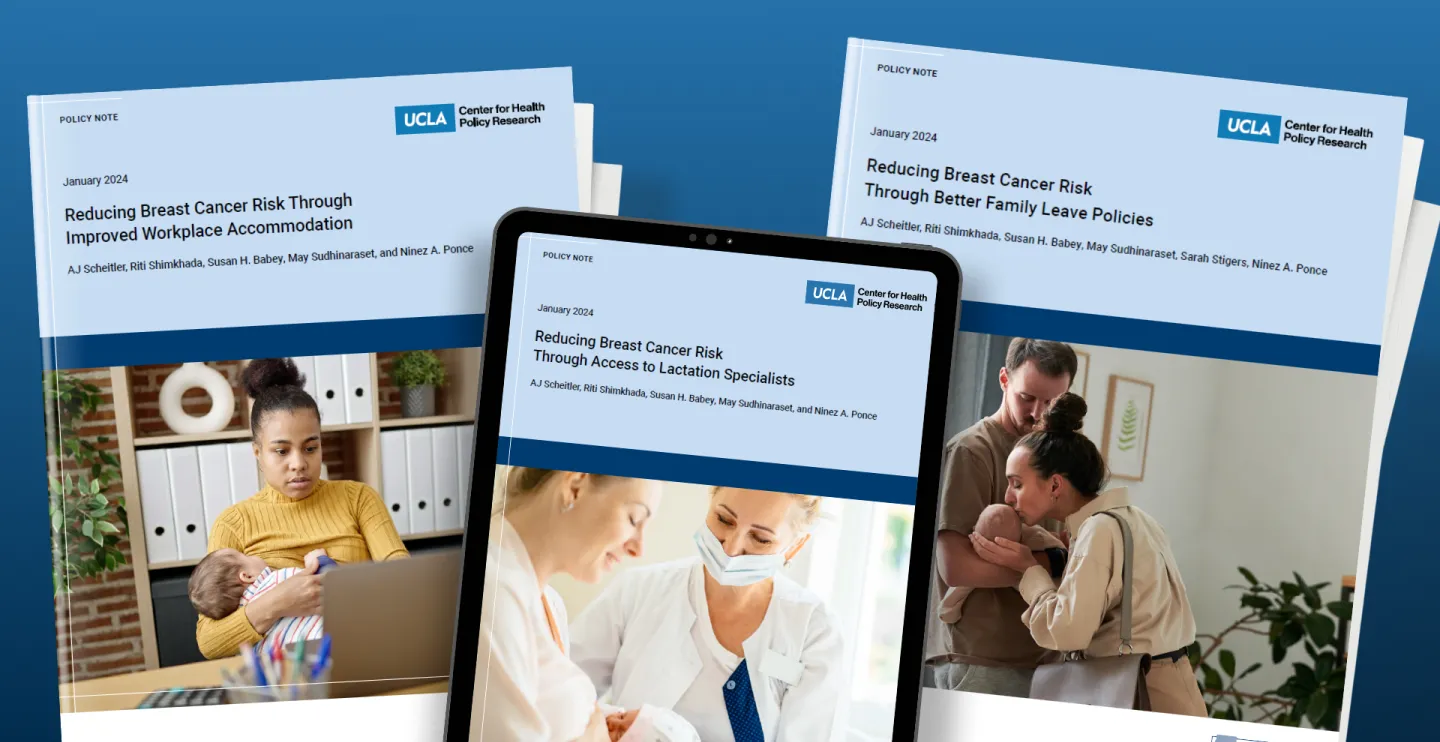Summary
In 2023, an estimated 32,000 women in California will be diagnosed with breast cancer, and approximately 4,680 will die from it. For birthing women, both the initiation of breastfeeding and the duration of it can reduce the risk of breast cancer. Therefore, it is important to understand the barriers to a woman’s decision to start breastfeeding and to continuing its practice for as long as desired.
Through this study of mothers of newborns, maternal care providers (including physicians, nurses, lactation consultants, and doulas), and community advocates for child and maternal health, authors gained insights into the barriers to initiating and continuing to breastfeed, particularly among women who enter or return to the workforce.
In this policy note, authors present findings — based on interviews, literature, and policy reviews — on the challenges women face in achieving their breastfeeding goals due to workplace barriers, as well as recommendations for improving workplace accommodations for breastfeeding mothers.
This is one key finding in a larger study of 33 participants who represent or work with Black, Asian American, or Native Hawaiian or Pacific Islander communities. In conducting the study, the authors learned about the barriers to initiating and maintaining breastfeeding in accordance with a mother’s breastfeeding plan.
Read the Publications
- Policy Note: Reducing Breast Cancer Risk Through Improved Workplace Accommodation
- Related Policy Note: Reducing Breast Cancer Risk Through Better Family Leave Policies
- Related Policy Note: Reducing Breast Cancer Risk Through Access to Lactation Specialists
- Related Policy Research Report: Reducing Barriers to Breastfeeding in Disadvantaged Communities




